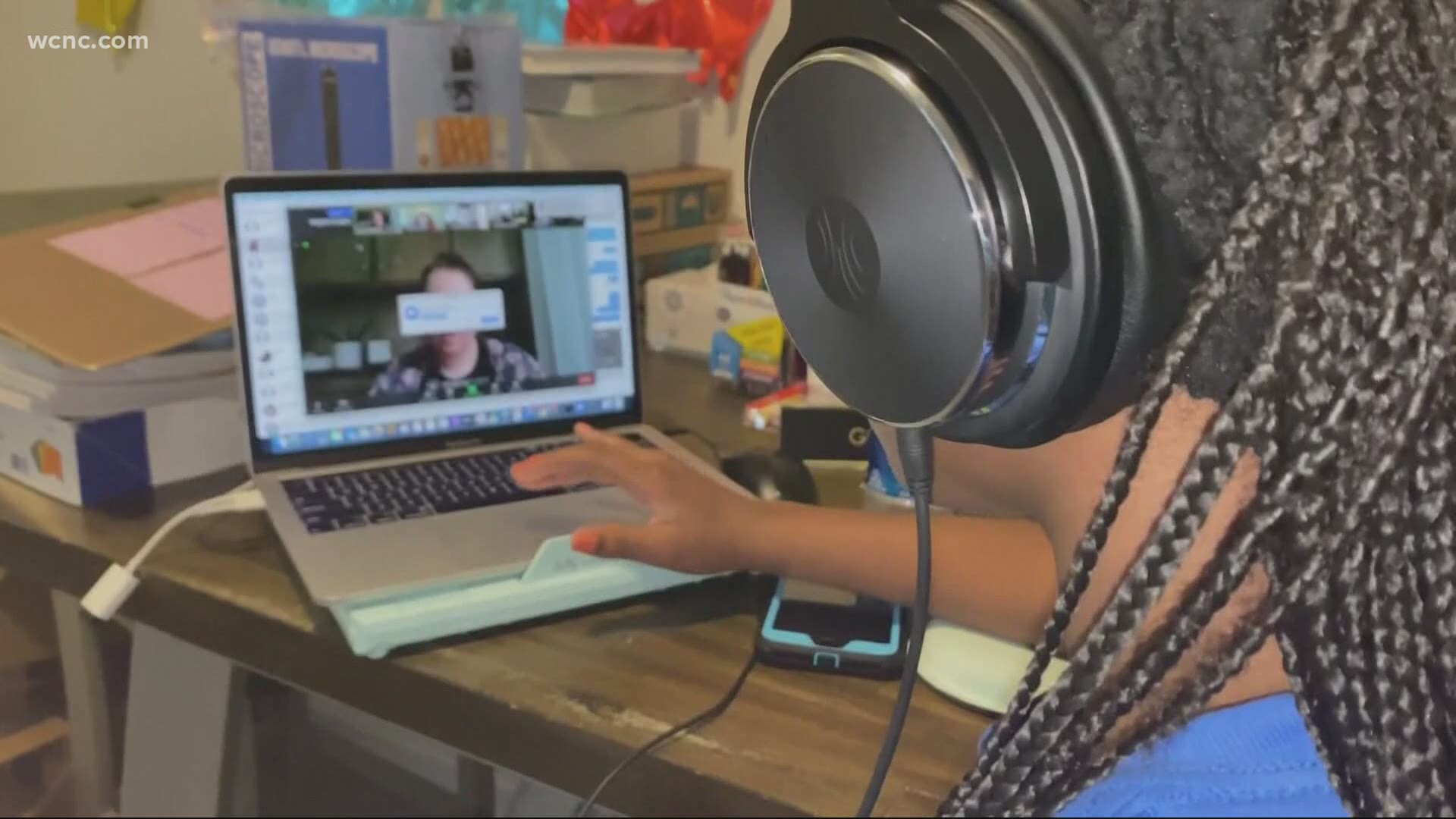CHARLOTTE, N.C. — All North Carolina public schools will be required to offer in-person learning by the end of March, the NC State Board of Education said. Board members voted on the new COVID-19 safety measures to reopen schools Thursday.
Many school districts have already brought students into classrooms based on individual coronavirus safety guidelines. However, the vote ensures all students will return to in-person learning. Some have not seen the inside of a classroom for more than a year.
"The governing boards of all North Carolina public school units should resume providing all students enrolled in grades kindergarten through twelfth grade with the option of in-person learning to the fullest extent possible consistent with the guidelines in the North Carolina Strong Schools Toolkit and the health and safety needs of the students, beginning no later than the end of March of 2021," board members said in a release.
The new safety guidelines will require face coverings for all students, and six feet of social distancing for grades six and up, according to the release. The Board of Education said vaccine research and distribution played a part in the decision. COVID-19 vaccines became available statewide for school faculty on Feb. 24.
"Scientific understanding of the methods of transmission of the COVID-19 virus has advanced significantly since the public schools of North Carolina closed for in-person learning in March of 2020," the board said.
The resolution was approved unanimously.
This comes as Gov. Roy Cooper recently vetoed a bill requiring North Carolina schools to reopen a few days ago.
“Extensive research tells us we can bring students back to the classroom with the right measures in place,” Dr. Mandy Cohen, secretary of NC DHHS, said previously. “And students need in-person school not only for academics, but to learn social skills, get reliable meals, and to continue to grow and thrive.”
The new guidance requires that only middle and high school students maintain six feet of social distancing at all times, as research shows younger children are less likely to spread the virus than older teens and adults.
DHHS said they'll make millions of rapid antigen tests available to schools statewide. The federal government gave the state nearly 3 million BinaxNOW tests with around 2 million of those being given to schools that enroll in the testing program. Under that program, teachers and staff would be tested weekly. Students and adults would be tested if they show COVID-19 symptoms or had exposure to someone who tests positive for the virus.
Parents and guardians would have to consent for their children to be tested at school. Health officials say this testing program is just another tool to get and keep kids in the classroom for the remainder of the year.

